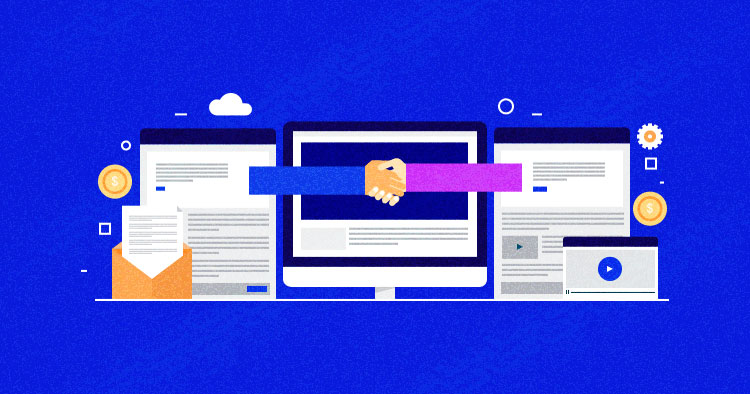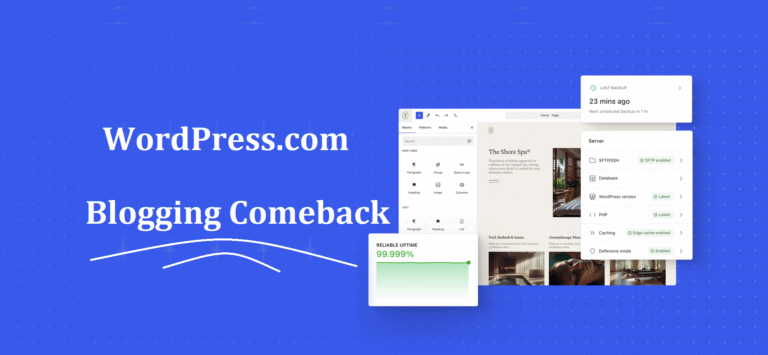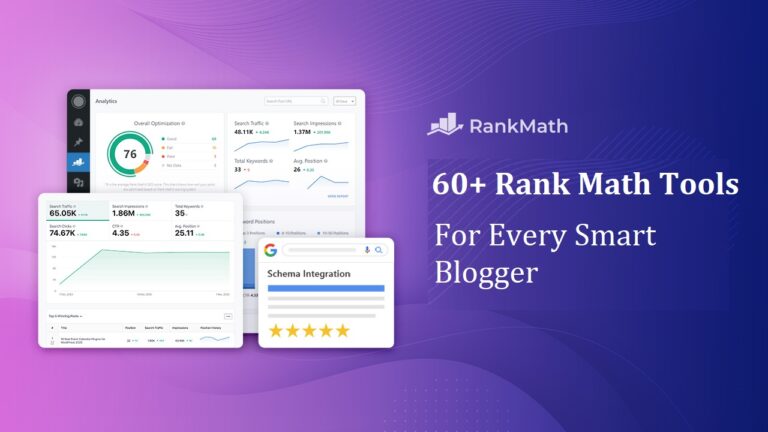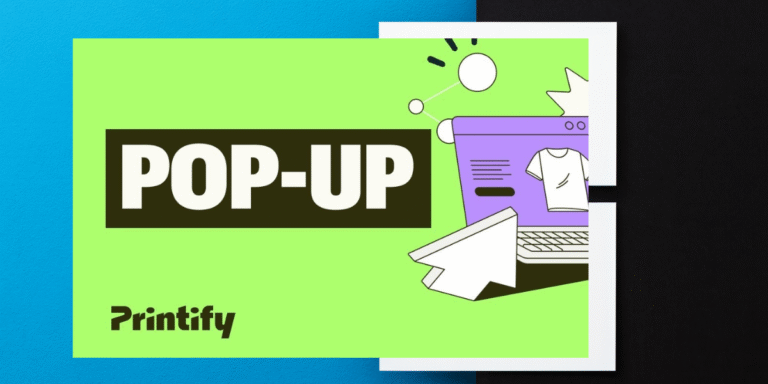Affiliate Marketing Secrets of 2026 (and How to Do It Right)

You know that awkward moment when someone asks how you make money online and you mumble something about “partnerships” instead of just saying affiliate marketing? Yeah, we need to talk about that.
Let’s start with an uncomfortable truth: I earned less from affiliate marketing last year than I ever expected, and for the longest time, I was embarrassed to admit it.
Why?
Because affiliate marketing has this grimy reputation. Like it’s the sketchy cousin of “real” business models. The internet is littered with pushy sales pages, fake reviews, and that one guy who promises you can make $10K a month selling someone else’s course about making money selling courses.
But here’s the thing – and this might surprise you – affiliate marketing isn’t inherently evil.
The people doing it wrong? They’re the problem.
My Cringey Affiliate Marketing Origin Story

Picture this: It’s 2021, I’m three months into blogging, and I just discovered that affiliate programs exist. My brain immediately went to “EASY MONEY!” mode because apparently I’m that predictable.
I signed up for every program I could find. Amazon Associates, random software tools I’d never used, courses I’d never taken. If it had a commission structure, I would have applied.
Funniest part? I’d skip the product details, ignore the features, and scroll straight to the bottom like a treasure hunter, just hunting for those magic words: “Affiliate Program” or “Partner Program.” Everything else was background noise.
My content strategy? Shoving affiliate links into every post like I was stuffing a turkey on Thanksgiving. Product reviews for things I’d never touched. “Top 10” lists based entirely on which programs paid the highest commissions. You dig?
The results were… embarrassing.
My first month’s earnings: $3.47. From my mom buying something after clicking my Amazon link. Because she felt bad for me. (Thanks, mom).
My readers started avoiding my emails. My engagement tanked. One person literally unsubscribed with the message “This used to be helpful, now it’s just ads.”
That stung. Hard.
When My Affiliate Dreams Met Real-World Wi-Fi
The breaking point came when I recommended a $297 course I’d never taken to help people start freelance writing. Someone bought it, trusted my recommendation, and then emailed me weeks later saying it was complete garbage.
They weren’t angry. They were disappointed. Which was somehow worse.
“I trusted your judgment, Mia. I thought you’d actually tried this.”
I sat there staring at that email, realizing I’d become everything I hated about online marketing. I was pushing products for commission checks, not because they actually helped people.
That night, I deleted 90% of my affiliate links.
Not because affiliate marketing is bad, but because I was doing it completely wrong.
What Nobody Tells You About Affiliate Marketing Ethics
Here’s the dirty little secret: Most affiliate marketers are doing it backwards.
❌ The wrong way: Find high-paying affiliate programs → Create content to sell them → Hope people buy
✅ The right way: Create helpful content → Use tools/products that genuinely help → Share what actually works → Make money as a byproduct
The difference? One approach treats your audience like walking wallets. The other treats them like humans you actually want to help.
But here’s what’s really messed up: The industry rewards the wrong approach with flashy income reports and “affiliate marketing secrets” that teach manipulation tactics instead of genuine value creation.
Affiliate Programs I Use (And Why)
Let me get real about the affiliate programs that make up my income – and more importantly, why I promote them. Just to mention a few.
WPX Hosting
Now listen. I will cut to the chase and tell you that WPX hosting is one of the best hosting providers for bloggers, small businesses, and creators alike. It is the fastest managed WordPress hosting I know.
WPX hosting services speak for themselves. It has been recommended by several other prominent and veteran bloggers. See why. Try WPX Hosting today ➔
Rank Math ($200-500/month)
Rank Math has been my SEO buddy for so long. I trust the tool and understand it inside out. It combines tools that would force creators to subscribe separately.
It’s my go-to SEO companion of all time. It should be yours too. Try Rank Math for free today ➔
Kit ($800-1200/month)
I’ve used Kit (formerly ConvertKit) for three years. Before that, I tried Mailchimp (hated the limitations), Constant Contact (clunky interface), and AWeber (felt outdated).
ConvertKit just works better for creators.
I don’t promote it because it pays well.
I promote it because when people ask, “What email tool should I use?” Kit is genuinely my answer.
Proton ($300-500/month)
This one’s awkward because most people don’t know about this Swiss company.
But I’ve had their products for four years. From Proton Mail, Proton VPN, Proton Drive to Proton Pass. These tools are unique and must-haves for every creator.
Do I need to promote it? Not really. But when I’m talking about writing tools, leaving it out would be weird.
learnworlds ($200-800/month)
I helped a friend build her course on LearnWorlds after testing Thinkific, Kajabi, and Teachable. The student experience is cleaner, the backend makes sense, and I’m not constantly fighting the platform.
The key difference: I don’t create content specifically to sell these programs. They come up naturally when I’m helping people solve problems I’ve already solved.
Mindset Shift That Changed My Income

The biggest change wasn’t in my strategy – it was in my mindset.
Old mindset: “How can I get people to buy through my links?”
New mindset: “How can I help people make better decisions?”
This shift changed everything. Instead of writing reviews to sell products, I started writing honest assessments to help people avoid mistakes.
Example: My Fastcomet review actually recommends WPX Hosting for most people, even though Bluehost pays higher commissions. Why? Because WPX Hosting is genuinely better for bloggers.
The weird thing? My affiliate income went UP after I started recommending the best option instead of the highest-paying option.
Strategy That Works (Without Being Sleazy)
Here’s my current affiliate approach, broken down:
1. The “Use It First” Rule
I don’t promote anything I haven’t personally used for at least 30 days.
Period.
This eliminates 90% of potential affiliate partnerships, but the ones I do promote convert better because my recommendations come from real experience.
2. The “Would I Recommend This to My Sister?” Test
If I wouldn’t enthusiastically recommend something to my sister (who’s not in marketing and doesn’t care about my commissions), I don’t promote it.
This simple test has saved me from promoting so much garbage.
3. The “Context First” Approach
I never lead with affiliate links. The helpful content comes first, and the affiliate mention comes naturally within that context.
Instead of “Here’s the best email tool!” I write “Here’s how I grew my email list to 10K subscribers” and mention Kit or Beehiiv when explaining my actual process.
Let’s Talk Numbers (The Real, Messy Ones)
My affiliate income isn’t some smooth upward curve. It’s messier than that:
2021: $1,247 (mostly garbage promotions)
2022: $12,843 (after my ethics overhaul)
2023: $34,672 (focused on fewer, better partnerships)
2024: $47,123 (and growing)
But here’s what those numbers don’t show:
- Months where I made $200 because I refused to promote anything
- The $15K course partnership I turned down was because the product was mediocre
- Lost opportunities because I won’t compromise on my “use it first” rule
The trade-off is worth it. My audience trusts my recommendations now. When I do promote something, people actually buy it because they know I’m not just chasing commissions.
Common Affiliate Marketing Mistakes (That I’ve Made)

Mistake #1: Promoting Everything
I used to think that more affiliate programs = more money.
Wrong. Promoting fewer things you genuinely love works better than promoting everything that pays.
Mistake #2: Hiding the Affiliate Relationship
Some people try to sneak affiliate links in without disclosure. Don’t. It’s legally required in most places, and it kills trust when people find out.
Mistake #3: Focusing Only on High-Ticket Items
Those $2,000 course commissions look appealing, but if the course sucks, you’ll lose readers forever. Sometimes a $20/month tool recommendation that actually helps people is worth more long-term.
Mistake #4: Writing Fake Reviews
I see “reviews” all the time from people who clearly never used the product. Readers can tell. The weird enthusiasm, the missing specific details, the focus on features instead of real-world use.
Mistake #5: Making Everything About Money
When every piece of content includes affiliate links, you stop being helpful and start being a walking advertisement. Nobody wants that.
The Affiliate Disclosure That Works

Most affiliate disclosures read like legal mumbo-jumbo. Mine is simple:
“Quick heads up – some links in this post are affiliate links, which means I get a small commission if you buy through them (at no extra cost to you). I only recommend stuff I actually use and love. If I think something sucks, I’ll tell you that too.”
Why this works:
- It’s honest without being apologetic
- Explains the benefit (no extra cost)
- Sets expectations (I’ll be honest)
- Doesn’t make affiliate marketing sound dirty
The Programs I Turned Down (And Why)
Various “Make Money Online” Courses: These pay insane commissions ($500-1000 per sale), but most are recycled advice packaged with fake urgency. My audience deserves better.
Multiple Web Hosting Companies: I could easily make $2K+ monthly promoting various hosts, but I genuinely think WPX Hosting, Bluehost, GreenGeeks, and Fastcomet are best for beginners. Why confuse people for money?
Building an Affiliate Strategy That Doesn’t Suck
Start With Your Actual Tool Stack
What software, tools, and resources do you actually use? Start there. Your genuine experience beats any sales copy.
Document Your Decision Process
When you choose one tool over another, write about why. That comparison content converts better than generic reviews.
Be Specific About Use Cases
Instead of “This tool is great,” explain “This tool solved my specific problem of X when I was struggling with Y.”
Share the Downsides
Every tool has limitations. Mentioning them makes your recommendation more trustworthy, not less.
Track What Works
Not all affiliate partnerships are worth the effort. Focus on the ones that align with your content and actually convert.
Psychology Behind Ethical Affiliate Marketing
People don’t buy products. They buy better versions of themselves.
Bad affiliate marketing: “Buy this tool because it’s awesome!”
Good affiliate marketing: “Here’s how this tool helped me solve the same problem you’re facing.”
The difference is subtle but powerful. One approach pushes products. The other shares solutions.
Handling the Awkward Conversations
“Are you just promoting this for the money?”
I get this question sometimes. My answer: “I make money when you buy through my link, yes. But I’d recommend this tool even if I didn’t. Want me to share a non-affiliate link instead?”
“Why should I trust your recommendations?”
“You shouldn’t automatically trust anyone’s recommendations, including mine. Here’s my experience with [product], here are the alternatives I considered, and here’s why I chose this one. Make your own decision.”
“Affiliate marketing feels gross.”
“Bad affiliate marketing is gross. But would you rather get recommendations from someone who’s never used the product, or someone who has skin in the game and reputation to protect?”
The Long Game vs. The Quick Cash Grab
Most affiliate marketers optimize for quick commissions. I optimize for long-term trust.
Quick cash grab approach:
- Promote whatever pays the highest
- Create urgency with fake scarcity
- Focus on features over benefits
- Move on to the next promotion quickly
Long-term trust approach:
- Promote what genuinely helps
- Share honest experiences over time
- Focus on solving real problems
- Build relationships, not just sales
The payoff: My conversion rates are higher because people trust my recommendations. I make more money from fewer promotions because the ones I make carry weight.
What Success Actually Looks Like

Success in affiliate marketing isn’t just about income. It’s about building something sustainable.
Income metrics matter:
- Monthly recurring revenue (my average is $3,900/month)
- Conversion rates (mine range from 2-8% depending on the product)
- Average order value through affiliate links
But relationship metrics matter more:
- People implementing my recommendations and getting results
- Readers trusting me enough to ask for advice
- Building partnerships with companies whose values align with mine
Brutal Truth About Affiliate Income
Here’s what most affiliate marketers won’t tell you: the income is unpredictable.
Some months, I make $2,000. Others, I do make $5,000. It depends on my content schedule, product launches from partners, and whether Mercury is in retrograde (kidding about that last one, but it feels random sometimes).
The key is building multiple income streams. Affiliate marketing is part of my business, not the whole thing. Courses, coaching, and client work provide stability while affiliate income provides upside.
Questions I Get Asked (And My Honest Answers)
How long before you see affiliate income?
Realistically, 6-12 months if you’re doing it right. Anyone promising faster results is probably teaching the pushy approach that burns bridges.
What’s a realistic income goal for beginners?
Your first year? Maybe $1,000-5,000 if you’re consistent and ethical. The big numbers take time and trust-building.
Should I disclose affiliate relationships in every mention?
Legally, yes. Ethically, absolutely. It’s not just about compliance – it’s about maintaining trust with your audience.
How do you handle competition with other affiliates?
I don’t compete on price or bonuses. I compete on genuine value and honest recommendations. If someone else’s recommendation is better for a reader, I’m okay with that.
What if a product I promoted turns out to be terrible?
I address it head-on. I’ve written follow-up posts explaining when my opinion changed and why. Transparency builds more trust than pretending everything’s perfect.
Bottom Line (No Sugar-Coating)
Affiliate marketing isn’t passive income. It’s not get-rich-quick. It’s definitely not easy money.
It is: A legitimate way to monetize helpful content while maintaining your integrity.
The catch: You have to actually be helpful first. The money follows the value, not the other way around.
Most people fail at affiliate marketing because they start with the money and work backwards to the content. The ones who succeed start with genuinely helping people and let the money be a natural result.
My advice? If you’re thinking about affiliate marketing, start by being ridiculously helpful. Recommend things you actually use. Be transparent about relationships. Focus on your audience’s success over your commission checks.
The money will come – if you’re patient and principled about it.
FAQs
How do you find good affiliate programs to join?
Start with tools you already use and love. Check if they have affiliate programs. Most software companies do. I’ve found my best partnerships by reaching out directly to companies I’m already recommending for free.
What’s your commission rate breakdown?
It varies wildly. SaaS tools typically pay 20-30% monthly recurring. Courses pay 30-50% one-time. Physical products through Amazon pay 1-8%. Focus on value to your audience, not just commission percentages.
How do you track which content drives affiliate sales?
UTM parameters and affiliate platform analytics. I also survey my audience periodically to understand their decision-making process. Sometimes the sale happens weeks after the initial recommendation.
Should I create separate “review” content or integrate recommendations naturally?
Both, but prioritize natural integration. Dedicated reviews work for high-consideration purchases, but most of my affiliate income comes from mentions within helpful content.
How do you handle negative feedback about products you’ve promoted?
I take it seriously. If multiple people have issues with something I’ve recommended, I investigate.
I’ve removed affiliate links and written updates when products declined in quality.
Look, affiliate marketing doesn’t have to be sleazy. It can actually be a win-win-win: readers get honest recommendations, companies get quality referrals, and you get compensated for being helpful.
The key is leading with value, not commission checks. Your audience will thank you, your bank account will thank you, and you’ll actually sleep well at night.
Now stop overthinking it and go help some people. The money follows the value – always has, always will.
P.S. – Still feel weird about affiliate marketing? That’s actually a good sign. The people who should be uncomfortable with it are the ones pushing garbage for quick commissions. If you’re worried about doing it ethically, you’re probably going to do it right.





